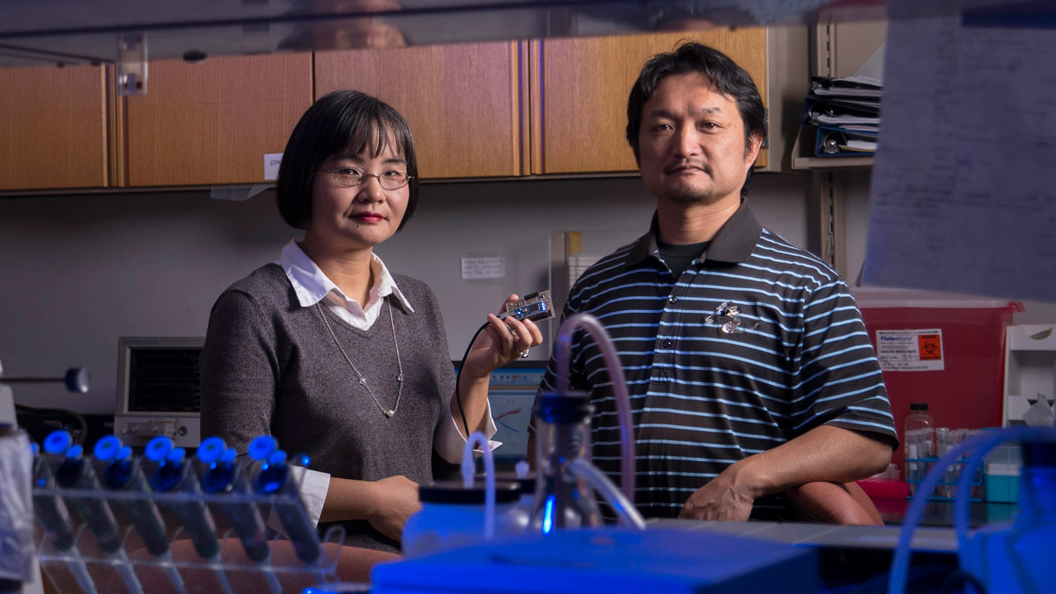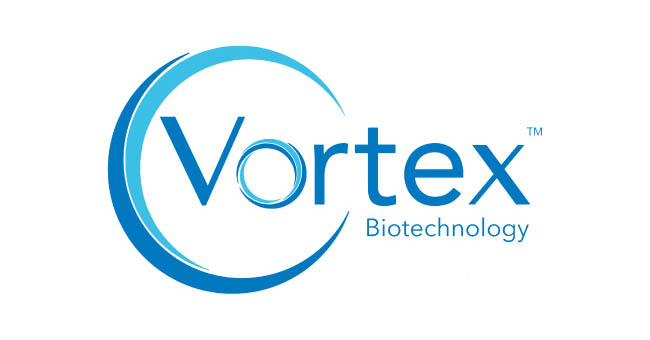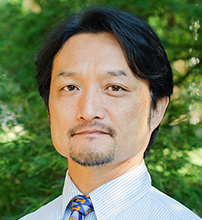 Photo by Adam Brimer
Photo by Adam Brimer
The University of Tennessee Research Foundation (UTRF) has licensed an innovative point-of-care diagnostic device to Vortex BioTech, a Knoxville-based start-up company that focuses on in-vitro diagnostic technologies.

Most diagnostic devices on the market today are expensive and can take hours or even several days to provide results. Since 2009, Jayne Wu, associate professor in the Department of Electrical Engineering and Computer Science in UT’s Tickle College of Engineering, and Shigetoshi Eda, professor in the Department of Forestry, Wildlife, and Fisheries at the UT Institute of Agriculture, have been collaborating to develop a low-cost diagnostic device that is easy to use, portable, and can detect infectious diseases, pathogens, and physiological conditions in humans and animals in a matter of minutes.
“Time is critical when it comes to diagnosing and treating illness, especially for acute diseases,” says Wu. “This device allows healthcare providers to detect diseases early and start treatment almost immediately, potentially saving lives and preventing infectious disease outbreaks.”

Wu and Eda have successfully tested a prototype device to detect bovine tuberculosis and Johne’s disease in cattle as well as influenza and tuberculosis in humans, and the professors believe the device can be adapted to diagnose additional diseases and physiological conditions, including AIDS, cancer, and pregnancy.

Working with Wu and Eda to further develop and commercialize their diagnostic device was a straightforward decision for Mr. Chad Seaver, CEO and co-founder of Arkis Biosciences. Chad is an entrepreneur with 20 years of experience in medical technology and business development and was previously employed by Siemens Healthcare via its CTI acquisition. Though he is now pursuing a Ph.D. in biomedical engineering at UT, Chad was introduced to Wu and this diagnostic technology while studying for his master’s degree in electrical engineering.
“This is a breakthrough for point-of-care diagnostics, and I’m eager to bring the technology to market,” says Seaver. “Vortex BioTech will make this technology easily accessible for the healthcare, agricultural, and food safety industries.”

“Dr. Wu and Dr. Eda have developed a technology that has the potential to revolutionize disease detection, prevention, and treatment, and Chad’s familiarity with the technology and the medical device space makes him a natural partner in bringing this device to market,” says Maha Krishnamurthy. “We are incredibly proud to support their work and look forward to seeing its impact on society.”
Looking forward, Vortex BioTech plans to offer a beta product within the next 18 months. Thereafter, the company anticipates partnering with a strategic company to scale up production and make the device available around the globe. Vortex BioTech is currently inviting investors to participate in launching the product and transforming the market.
Tags: Biotechnology, Department of Forestry Wildlife and Fisheries, Featured, Inventions, Tickle College of Engineering, UT Institute of Agriculture, UT Knoxville, UT Research Foundation